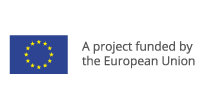Kigali deal, major step forward for global climate

On 15 October in Kigali, Rwanda, the 197 Parties to the Montreal Protocol have reached a deal which has been described as "monumental". The agreement to phase-down climate-warming hydrofluorocarbon, gases (HFCs) represents a significant step forward in implementing the Paris Agreement on climate change. HFCs, which are used mainly in refrigeration and air-conditioning equipment, have a global warming effect up to 15,000 times greater than carbon dioxide and are the fastest growing source of greenhouse gas emissions.
The Kigali amendment requires developed and developing countries to gradually limit their consumption and production of HFCs. EU Commissioner for Climate Action and Energy Miguel Arias Cañete said: "This is a huge win for the climate. We have taken the first concrete step in delivering on the promises we made in Paris last December. The global phase-down we have agreed today could knock off up to half a degree of warming by the end of the century. We have shown through our own action on HFCs that this is a fast and cost-effective way to reduce emissions”.
Under a timetable released on the website of the Montreal Protocol, developed countries must reduce their use of HFCs by 10 percent by 2019 from 2011-2013 levels, and then by 85% by 2036. A second group of developing countries, including China and African nations, are committed to launching the transition in 2024. A reduction of 10% compared with 2020-2022 levels should be achieved by 2029, to be extended to 80 percent by 2045. A third group of developing countries, which include India, Pakistan, Iran, Iraq and Arab Gulf states, must begin the process in 2028 and reduce emissions by 10% by 2032 from 2024-2026 levels, and then by 85% by 2047.



